Frequently Asked Questions
What exactly is Marine Mechanical Design?
A marine mechanical designer is the link between a hull designer and an operator. It has often been said that a marine mechanical designer "gives life to ships" by designing the ship systems that allow the ship to operate as intended.
What are ship systems?
Ship systems are distinctive piping systems and propulsion systems that work as integral and independent components of the ship.
What does a marine mechanical designer do?
We design pipe systems:
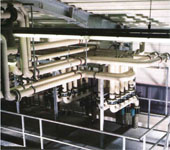 |
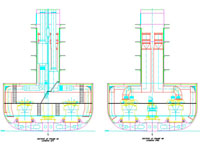 |
We also design propulsion systems:
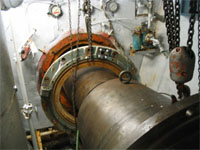 |
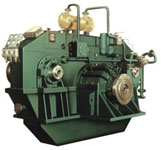 |
And, we work in production and manufacturing (land and marine based):
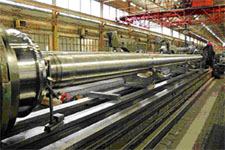 |
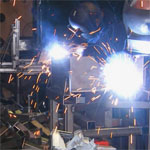 |
What are some of the main program aspects?
Students will:
- Rely heavily on computers
- Use AutoCAD and MS Office extensively
- Learn through practical and design work
- Learn through project-based learning
When was the program established and why?
The program began in early 1980's and is now nationally accredited through Canadian Technology Accreditation Board (CTAB).
Goals of the program:
- Technical education in Marine Mechanical Design coupled with knowledge of Naval Architecture
- Technical education in general Marine Mechanical Design technology
- Prepare students for employment in both land and marine based environments
What aptitudes should I possess as someone interested in the program?
Potential students often have an aptitude or interest in one or more of the following areas:
- ships, boats, yachts, and/or offshore structures
- design engineering
- ship and/or mechanical systems design engineering
- math
- physics
- drawing/drafting (manual and/or CAD)
- working with computers in an office environment
- technical writing
What can I expect to learn as I progress through the diploma program?
You will start with a variety of typical post-secondary courses (communication skills, math, physics, etc) and an introduction to Marine Mechanical Design (ESNY 1202). Next you will learn how to use AutoCAD and begin studying prime movers and auxiliary power plants, mechanics, and ship structural geometry.
Then you will be taught the major ship systems, such as:
- Fuel oil system
- Lube oil system
- Compressed air system
- Cooling water system
- Bilge, ballast and fire system
- Domestic water system
- Exhaust arrangement
- Shafting arrangement
- Ventilation arrangement
- Machinery arrangement
- Composite piping
- and more...
Will we learn about other marine applications besides ships?
Yes. There is an offshore structures course in which you will learn about the offshore oil industry and the design and operation of many types of offshore oil platforms and sub-sea pipelines and equipment. You will also take a course on cold environment design in which you will learn how to adapt your knowledge of designing ship systems to function properly and effectively in extreme environments.
Will I find employment when I finish the program?
While employment rates can vary by program and industry sector, a survey of the Marine Institute graduating class of 2006 indicated that 81% of respondents were successful in finding employment. The time it takes for graduates to find employment is also low. Over 70% of diploma level survey respondents found employment within two months of graduation.
The location of employment for graduates varies depending on the field and a graduate's personal interest. MMD graduates have found employment in Canadian provinces including: Newfoundland and Labrador, Prince Edward Island, Nova Scotia, New Brunswick, Quebec, Ontario, Winnipeg, Alberta, and British Columbia. Other graduates have accepted employment outside of Canadian the United States, Russia, China, Bahamas, and Norway.
What type of job can I expect when I graduate?
The goal of the MMD program is to prepare students for careers in the ship building, ship repair and conversion, and offshore industries, but also in general mechanical engineering.
Besides shipyard positions, students find employment with government agencies, consulting engineering firms, offshore and ocean engineering companies, engineering sales and servicing companies, refineries and pipeline industries, utility and industrial production companies, and the Canadian Navy.
Graduates from this program can work in numerous areas, such as ship systems design, estimation and planning, quality assurance technology, diesel engine sales, ship propulsion, production, and land based companies and plants.

